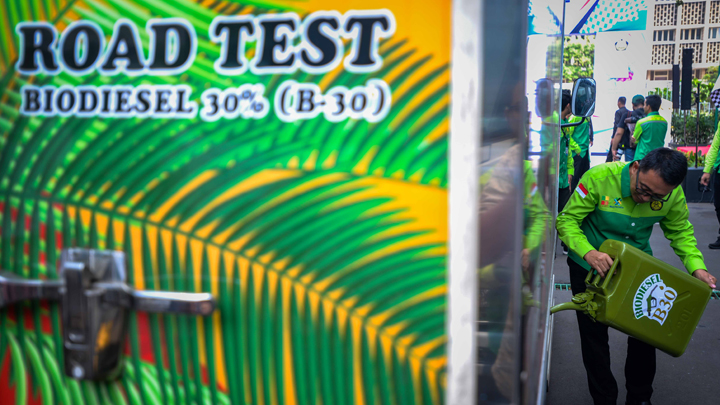Expanding Costs for the Biodiesel Program
Tuesday, May 12, 2020
arsip tempo : 174608512129.

BEFORE decisions regarding organizational regulations and work procedures of the Indonesian Sustainable Palm Oil (ISPO) Steering Committee could even be made, the coordinating ministry for the economy was facing a new task closely related to the matter of palm oil. The drop in the world price of crude oil has made the government’s current program to mix biofuel and diesel fuel (biodiesel) uneconomical. “The strategy which needs t
...
Subscribe to continue reading.
We craft news with stories.
 For the benefits of subscribing to Digital Tempo, See More
For the benefits of subscribing to Digital Tempo, See More








